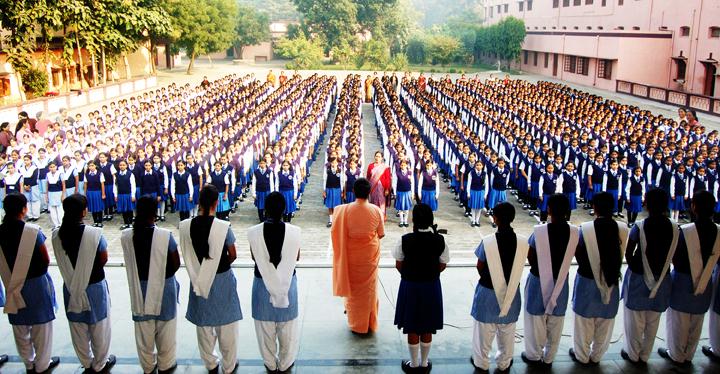The coronavirus lockdown has led to a prolonged closure of schools and children in all parts of the country have been bearing the brunt of staying away from all forms of regular academic activities even while several institutions have started taking online classes for students. But now schools in states like Andhra Pradesh and Assam have once again opened their doors for students and the classes have resumed in many schools across the two states. Even though the schools have opened and are expecting that students will return back with enthusiasm, the schools have so far got a mellow response in terms of attendance. According to the estimates, only 42% students have returned back to school in Andhra Pradesh and Assam reported and even poorer turnout. In Andhra Pradesh, the students studying in class 9-12 were asked to come to school but in Assam the schools opened their doors for all students class six onwards.
It is also important to note that apart from schools in Assam and Andhra Pradesh, central government residential schools of Jawahar Navodaya Vidyalayas also opened in places like Puducherry, Sikkim, Andaman and Nicobar and Lakshadweep. According to the latest series of rules issued by the Education Ministry for the reopening of schools amid the pandemic, schools have been mandated to ensure that they follow the ‘one child one bench’ norm and make sure that adequate social distancing is maintained at all costs. The other guidelines include having single- seater desks installed in classrooms and staff rooms in the school and allowing students to attend classes in two shifts. The authorities have also asked schools to have isolation centres inside the school campus.
The home ministry granted schools in the country, the permission to open from October 15 and following this permission, Uttar Pradesh became the first state in India to open its schools amid the pandemic on October 19. To make sure that the safety and wellbeing of the students wasn’t compromised upon, the Uttar Pradesh government asked schools to conduct classes in two shifts and asked students to come to school divided into two halves. But on the first day of opening, the schools of Uttar Pradesh recorded a low attendance and very few students turned up. Parents have remained largely afraid and reluctant about sending their wards to school due to the fear of catching the coronavirus infection.
School closures have affected children across the world and in India, its implications have been the worst for children from the disadvantaged communities as they have been largely kept away from accessing online education and resources and thus there is a widespread understanding that if schools continued to keep their doors closed, it will impact the lives of such children beyond repair and they may never be able to come back to their educational dreams.
These children are already from the most vulnerable of backgrounds and their inability to access online education amid the lockdown has already resulted in a huge academic gap that they will take much longer to fulfil compared to their more well-off counterparts who have access to a wide variety of helps.
A study even went on to show that access to online education was selected to a minute section of children in states like Karnataka, Tamil Nadu, Andhra Pradesh and Telangana. The study conducted by CRY in May and June tells us that more than 94% children across these states didn’t have access to smartphones or the internet to be able to attend online classes, clearly showing that access to online education was only limited to a handful of students in India.
Although the opening up of schools may be a step in the direction of again bringing such children into the domain of education but it will be a challenge to do so while keeping them safe from infection.













